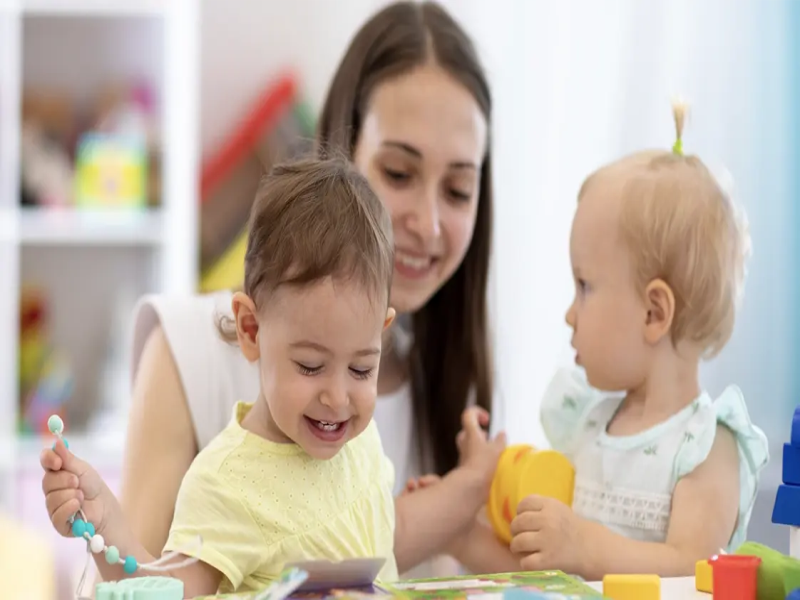Adoptive and foster parenting are both very fulfilling paths that are full of love, kindness, and the chance to make a big difference in a child’s life. There are, however, some special challenges that come with these trips. Children who have been in foster care or been adopted often carry the weight of stress, loss, and problems with their attachments from the past. Establishing trust and making secure bonds can be hard and complicated because of this.
This is where adoptive and foster parents can make a big difference through awareness. By practicing mindfulness, parents can build up the inner resources and skills they need to deal with the unique challenges of being a parent and make their home a safe and caring place for their kids. This complete guide will look at the unique needs of adopted and foster children, explore the life-changing power of mindfulness, and give you useful tips for fostering trust and bonding. This article will give you useful information and tools to help you make your child’s home safe and loving, whether you are thinking about adoption or foster care or are already on this road.

Understanding the Needs of Adopted and Foster Children
To effectively parent children who have experienced adoption or foster care, it’s essential to understand their unique needs and the potential challenges they may face.
Trauma and Loss
Many adopted and foster children have experienced significant trauma and loss in their early lives. This can include:
- Neglect: Lack of basic needs being met, such as food, shelter, or emotional support.
- Abuse: Physical, emotional, or sexual abuse.
- Separation from Biological Family: The separation from their biological family, even if it was necessary for their safety, can be a traumatic experience for a child.
- Multiple Placements: Children in foster care may experience multiple placements in different homes, leading to instability and disruption of attachments.
These experiences can have a profound impact on a child’s development, affecting their behavior, emotions, and ability to form healthy relationships.
Attachment Challenges
Attachment refers to the emotional bond between a child and their caregiver. Secure attachment is crucial for healthy child development, providing a sense of safety, security, and trust that allows children to explore the world and develop healthy relationships.
Adopted and foster children may face challenges in forming secure attachments due to their past experiences.
- Insecure Attachment Styles: Children who have experienced trauma or inconsistent caregiving may develop insecure attachment styles, such as anxious-avoidant, anxious-resistant, or disorganized attachment. These attachment styles can manifest in behaviors like clinginess, withdrawal, or difficulty regulating emotions.
- Difficulty Trusting Caregivers: Past experiences of neglect or abuse can make it challenging for children to trust adults, including their adoptive or foster parents. They may be hesitant to form close relationships or may exhibit behaviors that push caregivers away.
The Importance of Trust and Safety
Creating a sense of trust and safety is paramount for adopted and foster children. Trauma can shatter a child’s sense of security and make it difficult for them to feel safe and loved.
- Predictability and Consistency: Providing a predictable and consistent environment can help children feel safe and secure. Establish clear routines, consistent expectations, and follow through on your promises.
- Emotional Attunement: Be attuned to your child’s emotional needs and respond with empathy and understanding. Help them identify and express their emotions in a healthy way.
- Patience and Compassion: Building trust takes time and patience. Be patient with your child’s progress and offer unconditional love and support, even during challenging moments.
By understanding the unique needs of adopted and foster children and creating a safe and nurturing environment, you can lay the foundation for building a strong and healthy attachment.
The Power of Mindfulness in Parenting
Mindfulness, which means being fully present and aware of the present moment without judging it, can help adopted and foster parents change their lives. It can help you be more aware, compassionate, and strong as you deal with the hurdles of being a parent.
What is Mindfulness?
Focusing on the present moment with openness and interest, without letting your thoughts or feelings get in the way, is what mindfulness is all about. Having a kind and open mind is needed to observe your inner experience and the world around you.
Benefits of Mindfulness for Adoptive and Foster Parents
Mindfulness offers a multitude of benefits that can enhance your parenting journey:
- Reduced Stress and Emotional Reactivity: Parenting a child who has experienced trauma can be emotionally challenging. Mindfulness practices can help you manage stress, reduce emotional reactivity, and respond to challenging situations with greater calm and composure.
- Increased Patience and Compassion: Mindfulness cultivates patience and compassion, allowing you to approach your child’s behaviors and emotions with greater understanding and empathy.
- Enhanced Self-Awareness: By paying attention to your own thoughts, feelings, and bodily sensations, you gain a deeper understanding of yourself and your reactions to different situations. This self-awareness can help you identify your triggers and respond more skillfully to your child’s needs.
- Improved Communication: Mindfulness enhances your ability to listen attentively and communicate effectively with your child. This fosters a deeper connection and strengthens the parent-child bond.
- Greater Capacity for Empathy: Mindfulness helps you cultivate empathy, allowing you to see the world from your child’s perspective and understand their experiences more fully.
By incorporating mindfulness into your parenting approach, you can create a more nurturing and supportive environment for your child, while also enhancing your own well-being and resilience.
Mindful Strategies for Building Attachment and Trust
You need to be patient, understand, and willing to meet your adopted or foster kid where they are emotionally in order to build a secure attachment and trust. Mindfulness can be very helpful in this process; it can help you react with care, make the space safe, and deal with difficult behaviors with kindness.
Mindful Presence
Becoming present with your child is one of the best things you can give them. Showing your child that they are seen, heard, and respected through mindful presence means being fully present and paying attention in all of your interactions.
- Minimize Distractions: Put away your phone, turn off the TV, and create a space where you can focus solely on your child. This sends a powerful message that they are your priority and that you are fully invested in the interaction.
- Make Eye Contact: Eye contact is a powerful way to connect with your child and convey your attention and presence. However, be mindful that some children who have experienced trauma may find direct eye contact uncomfortable. Follow your child’s lead and adjust your approach accordingly.
- Active Listening: Listen attentively to what your child is saying, both verbally and nonverbally. Reflect back what you hear to show that you understand and validate their feelings. Avoid interrupting or offering unsolicited advice.
By practicing mindful presence, you create a space for your child to feel safe, seen, and understood.
Responding with Sensitivity and Attunement
Children who have been through stress or problems with their attachments may be more sensitive to emotional cues and find it hard to control their own feelings. Responding with awareness and care is very important for creating trust and a safe connection.
- Attune to Your Child’s Cues: Pay close attention to your child’s verbal and nonverbal cues. Notice their facial expressions, body language, and tone of voice. This helps you understand their emotional state and respond appropriately.
- Respond with Empathy: When your child is experiencing strong emotions, respond with empathy and understanding. Validate their feelings and let them know that it’s okay to feel the way they do. Avoid dismissing or minimizing their emotions.
- Offer Comfort and Reassurance: Provide physical comfort, such as a hug or a gentle touch, if your child is receptive to it. Reassure them that you’re there for them and that they are safe and loved.
- Mindful Self-Regulation: Be mindful of your own emotional state and reactions. If you’re feeling triggered or overwhelmed, take a mindful pause to regulate your emotions before responding to your child.
By responding with sensitivity and attunement, you help your child feel safe, secure, and understood, fostering a deeper connection and building trust.
Creating a Safe and Nurturing Environment
A safe, predictable, and nurturing environment is essential for all children, but it’s especially crucial for adopted and foster children who may have experienced instability or trauma in their past.
- Consistent Routines: Establish consistent routines and predictable schedules to provide a sense of stability and security. This helps children feel safe and know what to expect.
- Clear Expectations: Communicate clear expectations for behavior and provide consistent consequences for both positive and negative actions. This helps children feel secure and understand the boundaries of acceptable behavior.
- Nurturing Atmosphere: Create a warm, nurturing, and supportive environment where your child feels loved and accepted for who they are. Offer praise and encouragement, celebrate their achievements, and provide unconditional love and support.
- Physical Safety: Ensure your home is a safe and secure environment for your child. This includes childproofing the home, storing hazardous materials safely, and supervising young children closely.
Managing Challenging Behaviors with Mindfulness
Adopted and foster children may exhibit challenging behaviors due to their past experiences. Mindfulness can help you respond to these behaviors with greater patience, understanding, and compassion.
- Stay Calm and Present: When your child is exhibiting challenging behavior, try to remain calm and present. Avoid reacting impulsively or with anger. Take a mindful pause to observe your own emotions and choose a skillful response.
- Set Clear Boundaries: While responding with compassion is important, it’s also essential to set clear boundaries and limits for your child’s behavior. Explain the reasons behind the boundaries and provide consistent consequences for exceeding them.
- Seek to Understand: Try to understand the underlying needs or triggers that may be driving your child’s behavior. Are they feeling insecure, overwhelmed, or seeking attention? By understanding the root cause of the behavior, you can respond more effectively and address their needs in a more supportive way.
- Seek Professional Support: If you’re struggling to manage your child’s challenging behaviors, don’t hesitate to seek professional support from a therapist or counselor. They can provide guidance and strategies for addressing the underlying issues and fostering positive behavioral changes.
Mindful Communication
Clear, honest, and compassionate communication is essential for building trust and strengthening your relationship with your adopted or foster child.
- Active Listening: Practice active listening by paying attention, reflecting back, and asking clarifying questions. This shows your child that you value their thoughts and feelings.
- “I” Statements: Use “I” statements to express your own feelings and needs without blaming or criticizing your child. For example, instead of saying “You’re being disrespectful,” try saying “I feel hurt when you speak to me that way.”
- Avoid Blame and Criticism: Focus on addressing the behavior, not the child’s character. Avoid labeling your child or using harsh criticism, as this can damage their self-esteem and create resentment.
- Choose Your Words Carefully: Be mindful of the tone and language you use when communicating with your child. Speak calmly and respectfully, even when you’re feeling frustrated or challenged.
- Create a Safe Space for Communication: Encourage your child to express their thoughts and feelings openly and honestly. Create a safe space where they feel comfortable sharing their experiences without fear of judgment or rejection.
By practicing mindful communication, you can foster a deeper connection with your child, build trust, and create a more harmonious and supportive family environment.

Cultivating Mindfulness in Daily Life
Mindfulness isn’t just a set of skills; it’s a way of being that can change how you parent in every way. By practicing mindfulness every day, you can build up the inner strength to handle problems more easily, show your child more kindness, and make your home a more peaceful and caring place for everyone.
Mindfulness Practices
- Meditation: Regular meditation practice, even for a few minutes each day, can help calm the mind, reduce stress, and improve focus. There are various types of meditation, including mindfulness meditation, loving-kindness meditation, and walking meditation. Experiment with different techniques to find what resonates with you.
- Deep Breathing Exercises: Deep breathing is a simple yet effective way to activate the relaxation response and counteract the stress response. When you feel overwhelmed or stressed, take a few deep breaths, focusing on the sensation of your breath entering and leaving your body.
- Mindful Movement: Engaging in mindful movement practices, such as yoga, tai chi, or walking, can help release tension, improve body awareness, and promote a sense of calm and well-being.
Self-Care for Adoptive and Foster Parents
Prioritizing self-care is essential for maintaining your own well-being and resilience as an adoptive or foster parent. When you’re feeling stressed, overwhelmed, or depleted, it’s much harder to be the patient and attuned parent your child needs.
- Make Time for Yourself: Schedule regular time for activities that nourish your mind, body, and soul. This could include exercise, spending time in nature, pursuing hobbies, reading, or simply relaxing and unwinding.
- Seek Support: Don’t hesitate to reach out for support from friends, family, a therapist, or support groups specifically for adoptive and foster parents. Sharing your experiences and challenges with others can provide emotional relief, perspective, and guidance.
- Set Boundaries: Establish healthy boundaries in your parenting role and in other areas of your life. Learn to say “no” to requests or commitments that drain your energy or compromise your well-being.
- Practice Self-Compassion: Be kind and understanding towards yourself, acknowledging that parenting, especially adoptive and foster parenting, is challenging, and it’s okay to make mistakes. Practice forgiveness and self-acceptance.

Additional Resources for Adoptive and Foster Parents
Here are some additional resources that may be helpful for adoptive and foster parents interested in learning more about mindfulness:
- Books:
- The Connected Child by Karyn Purvis, David R. Cross, and Wendy Lyons Sunshine
- Parenting from the Inside Out by Daniel J. Siegel and Mary Hartzell
- The Whole-Brain Child by Daniel J. Siegel and Tina Payne Bryson
- Organizations:
- The Attachment and Trauma Network: Provides resources and support for families impacted by trauma and attachment challenges.
- Empowered to Connect: Offers resources and training on trauma-informed care and attachment.
- The National Foster Parent Association: Provides support and advocacy for foster parents.
- AdoptUSKids: Offers information and resources on adoption from foster care.
Conclusion
Foster and adoptive parenting bring both joy and challenges. Self-care and mindfulness are essential as you navigate this journey. Mindfulness makes you more in tune with your child’s needs, enhancing trust and connection. It’ll also help manage stress, promote self-compassion, and foster a nurturing family environment. Understand, becoming an adoptive or foster parent isn’t a sprint; it’s a marathon. Exercise patience with yourself and your child. Cherish small victories and let mindfulness transform both of you, to nurture a bond that lasts.







